The convergence of autonomous AI agents and hybrid staffing models is fundamentally reshaping the global workforce landscape, creating an ecosystem that is smarter, more efficient, and more adaptable than ever. This transformation is not just technological evolution—it is a complete revolution in how organizations manage talent, optimize processes, and create value in the digital era. The global AI market is projected to grow exponentially, reaching $1.01 trillion by 2031, while hybrid work adoption has stabilized at record levels, with 74% of companies now embracing it.
The Era of Autonomous AI Agents
Definition and Transformative Capabilities
AI agents have evolved beyond simple automation tools to become autonomous systems capable of perceiving, deciding, and acting independently. These intelligent systems operate in a continuous perception-decision-action loop, dynamically adapting to complex and changing environments without constant human intervention. Unlike traditional automation, AI agents learn from feedback, context, and evolving data, becoming smarter and more reliable over time.
Market Revolution and Enterprise Adoption
The global AI agent market is experiencing explosive growth, projected to surge from $5.29 billion in 2023 to $216.8 billion by 2035. This expansion reflects massive enterprise adoption: 92% of executives plan to implement AI-driven automation in workflows by 2025. Adoption is particularly strong in HR, where 70% of companies experimenting with AI are doing so within talent functions.
Industry Use Cases
AI agents are delivering measurable impact across sectors. In customer service, companies like H&M have implemented virtual shopping assistants that autonomously resolve 70% of customer queries, boosting conversion rates by 25% and tripling response speed. In recruitment, AI agents have halved hiring workloads, freeing managers to focus on human engagement.
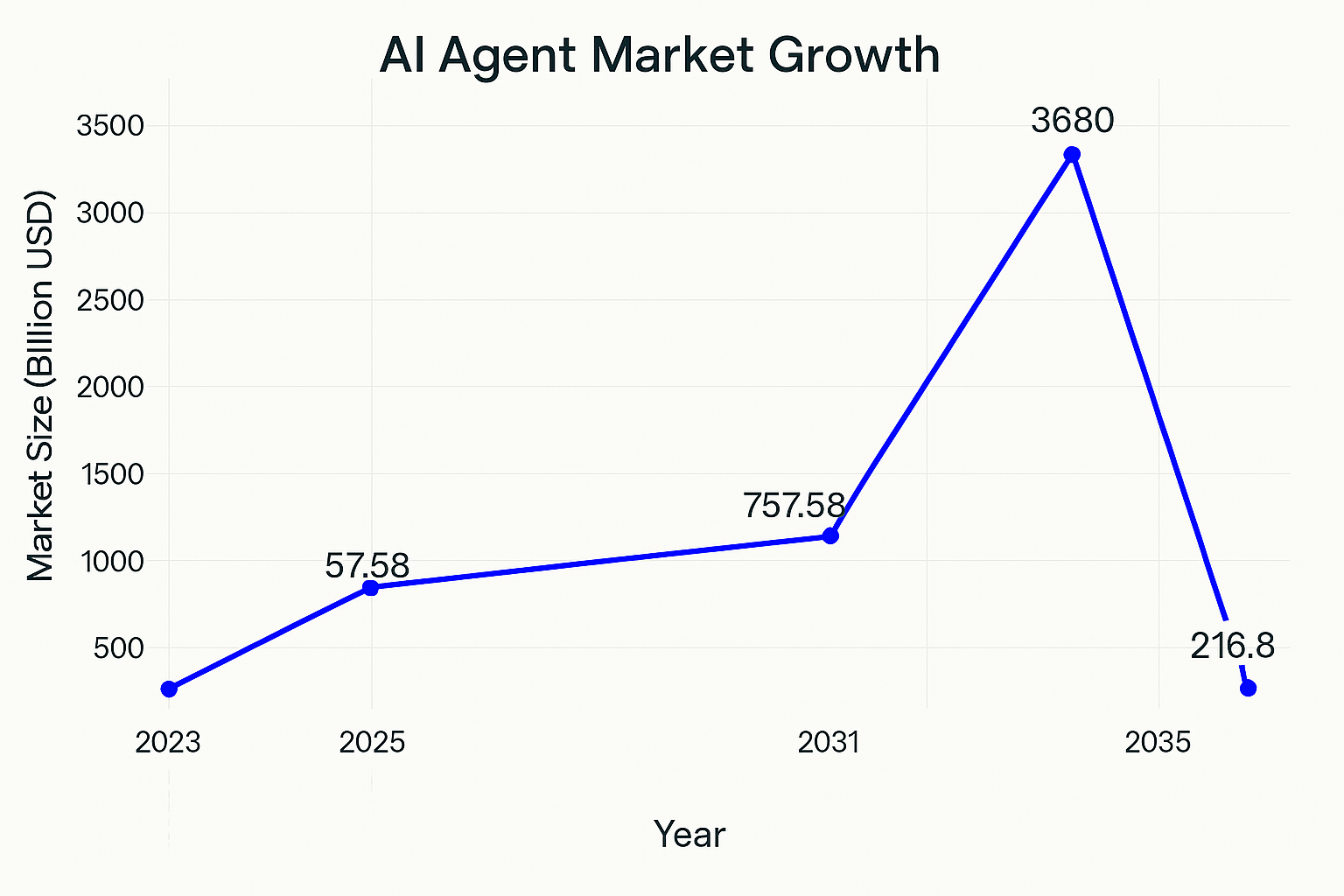
Evolution of Hybrid Staffing: Beyond Flexibility
Adaptive and Personalized Models
Hybrid staffing in 2025 has evolved into sophisticated models far beyond merely combining remote and onsite work. Organizations are adopting four main variants: flexible hybrid, fixed hybrid, office-priority, and remote-priority—each tailored to specific business and employee needs. This personalization means 83% of workers now prefer hybrid setups over fully remote or traditional office models.
Performance and Satisfaction Data
Research shows hybrid employees are, on average, 8% more productive than those working solely onsite or remotely. Additionally, 70% of managers report their hybrid teams meet or exceed productivity targets, while 59% of hybrid workers report higher job satisfaction. This data underpins the decision by 74% of CFOs to permanently shift some employees to hybrid arrangements.
Global Talent Access and Diversity Strategies
Hybrid models have democratized access to global talent, enabling companies to hire top professionals regardless of geography. The share of telework has surged by 18.6% since October 2022, now accounting for 23.6% of the US workforce. Organizations are leveraging this to build more diverse, adaptive teams ready for digital challenges.
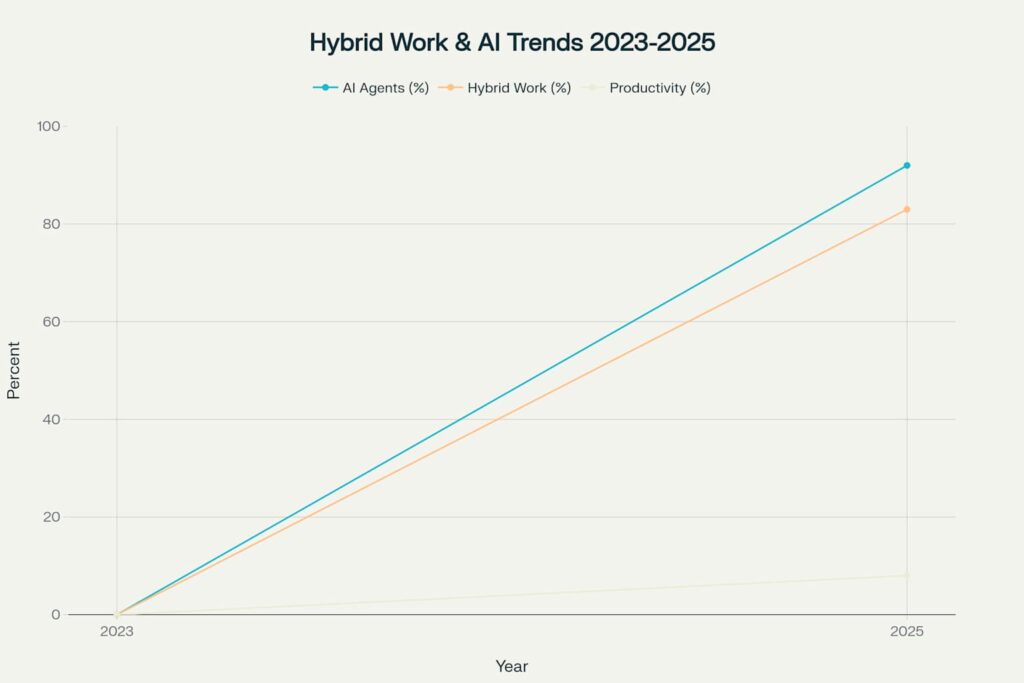
Strategic Integration: AI Agents in Hybrid Staffing
Intelligent Recruitment Automation
Integrating AI agents into hybrid staffing processes is creating truly intelligent and efficient recruitment systems. These systems use natural language processing and predictive analytics to automate resume screening, identify ideal candidates, and optimize the candidate experience. 93% of Fortune 500 HR directors have begun integrating AI tools to enhance business practices.
AI-Powered Hybrid Management Platforms
Smart offices powered by AI are revolutionizing hybrid workspace management, analyzing space usage, managing room bookings, and optimizing collaboration between onsite and remote teams. These tools provide real-time analytics, allowing companies to collect valuable data on office utilization and employee preferences, making the hybrid workplace experience seamless.
Business Success Stories
The financial sector is leading successful implementation of AI-powered hybrid staffing models. For example, a Des Moines financial firm adopted a hybrid recruitment model combining local market knowledge with scalable offshore/onshore delivery, enabling them to fill roles across all categories—from customer service to cloud integration specialists and Salesforce developers.
Market Data and Future Projections
Exponential AI Sector Growth
The AI market is expanding at an unprecedented rate, projected to grow from $757.58 billion in 2025 to $3.68 trillion by 2034. More than 171,000 companies and 46,200 startups are driving global innovation. The sector currently employs over 11.6 million people worldwide, adding 1.2 million jobs in the last year.
Employment Transformation and Opportunity Creation
Contrary to popular fears, AI is producing a net positive effect on job creation. The World Economic Forum expects AI and related technologies to result in a net gain of 78 million jobs globally by 2030, even as 92 million positions are displaced. The fastest-growing roles include Big Data specialists, fintech engineers, and AI/ML experts.
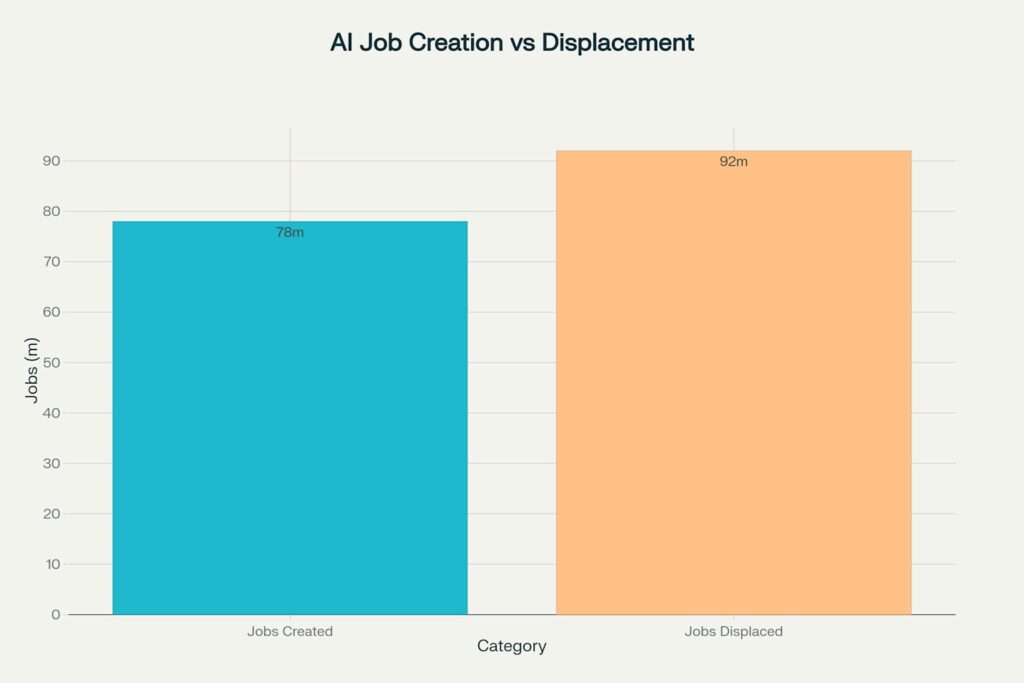
Methodologies and Best Practices
Agile Transformation Frameworks
Leading organizations are adopting agile methodologies for workforce transformation, enabling shorter, iterative planning cycles. Key principles include cross-functional pods focused on specific outcomes, regular review cycles to adjust priorities, and scenario modeling to test different approaches.
Skills Management and Talent Assessment
Skills management platforms like Degreed, Workday, and Gloat help organizations visualize, manage, and develop workforce capabilities. These tools track individual and team skills, identify gaps, recommend learning paths, and connect employees with internal opportunities.
Ethical and Privacy Considerations
AI in staffing and recruitment requires careful attention to ethics. Hiring biases can emerge if training data introduces prejudice, affecting fairness. Companies must address data privacy, misuse of sensitive information, and algorithmic bias to ensure fair, respectful hiring.
Emerging Trends and Innovations
Human-AI Hybrid Workforce
Goldman Sachs predicts the rise of a new hybrid workforce where AI systems are employed and trained as part of mixed human-AI teams. HR will evolve into a department for both human and machine resources, and we may even see the first “AI layoffs”—where underperforming AI models are replaced by better tools or humans.
Expert AI and Specialized Models
Companies are integrating AI with proprietary data using retrieval-augmented generation (RAG) or fine-tuning, resulting in expert AI systems with advanced, industry-specific knowledge. These specialized models will emerge across medicine, robotics, finance, and materials science.
End-to-End Business Process Automation
AI agents are evolving to automate entire workflows, not just individual tasks. 60% of organizations already use AI-powered tools to optimize processes and analytics, with 74% planning to increase AI investments by 2025.
Challenges and Strategic Considerations
Integration Complexity and Change Resistance
Successfully implementing AI agents in hybrid staffing faces challenges like legacy system integration, data privacy, bias, high initial costs, and employee resistance. Organizations must develop comprehensive change management strategies addressing both technical and human aspects.
Capability Development and Reskilling
60% of workers will need reskilling, but many lack adequate resources. Companies must act quickly, integrating upskilling programs into workflows to ensure success.
Regulation and Compliance
AI adoption is driving a surge in legislation: 127 countries have passed AI-related laws, up from just one a decade ago. Organizations must stay ahead of regulatory and compliance requirements.
Conclusions and Strategic Recommendations
The convergence of AI agents and hybrid staffing models represents a transformative opportunity for organizations seeking to optimize talent management and create sustainable competitive advantages. Early adopters are gaining an edge through scalable, adaptable automation. Success in 2025 and beyond will require a strategy that balances technological innovation with ethical and human considerations.
Organizations should prioritize gradual, thoughtful implementation, ensuring efficiency and productivity benefits are equitably shared. The key to success is building work ecosystems where AI amplifies human capabilities, rather than simply replacing them.
By 2030, organizations that have successfully integrated AI agents with hybrid staffing models will not only have optimized operations but also created more satisfying, productive, and inclusive workplaces. This transformation is not optional—it is a strategic imperative for any organization aiming to lead in the digital economy of the future.
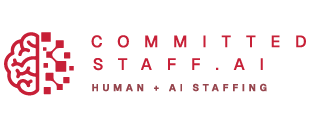

Recent Comments